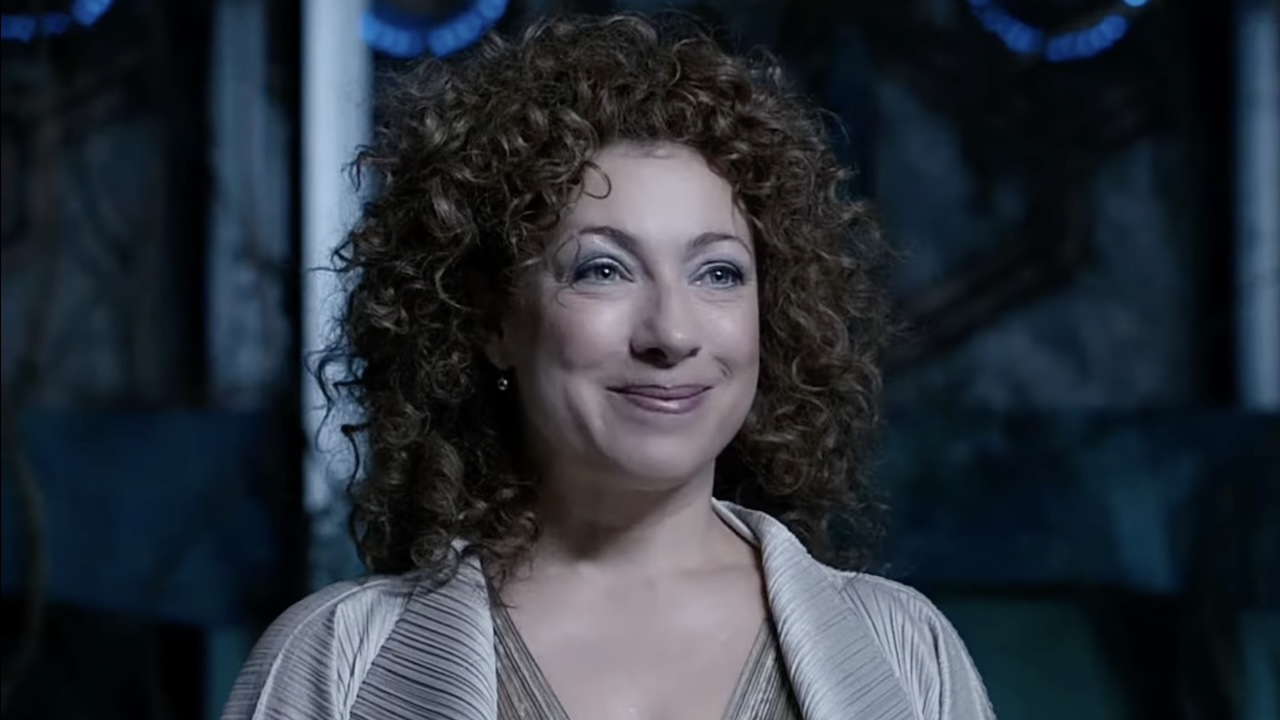In 2008, Israeli writer-director Ari Folman drew the world's notice with his daring, animated documentary Waltz With Bashir. Since then, wisps and rumors about his follow-up, based on Stanislaw Lem's 1971 science fiction novel The Futurological Congress, occasionally made their way into the news. But largely, the drama starring Robin Wright remained an enchanting enigma. Now, at long last, it's made its way on VOD--with a theatrical release soon to follow--and I'm thrilled to tell you The Congress is even more astonishing than Waltz With Bashir. In fact, it's a film so rich in texture, depth of emotion, and subtext that it feels a bit wrong to review it after only a single viewing. I can't rightly pretend I grasped all the details that slid by in this intoxicating narrative, but I hope to share the wonder this film evokes with every frame.
Robin Wright stars as herself, presented to us as an actress who once held so much promise as Princess Bride's Buttercup. But in her opening scene, her agent (Harvey Keitel, in one of the most exquisite performances of his career) berates her for all the bad choices that have led her to squeaking by, scrounging for roles, and living with her two children in a converted hanger on the edge of an airport's runway. He tells her she has just one choice left. She must sell "this thing called Robin Wright" to Miramount studios, which will scan her into their computers. Her identity and celebrity will become their commodity. She will never act again, but her computer-created version will never age, and will never say no to a project.
Within this concept, Folman sets up a scathing criticism of celebrity culture, which The Congress suggests demands people sell themselves, bit by bit, again and again, until they have nothing left to call their own. Understandably, Robin is initially repulsed by the studio's push to remove her consent, her choice. But she has her son to worry about. Played by Kodi Smit-McPhee, little Aaron Wright has an incredible imagination and vision, but is losing his vision and hearing because of a cruel and rare disease. Through a dreamy soundscape Folman allows us entrance to Aaron's isolated world. It's his disorder and need that spurs Wright to abandon her life's work, sell her identity to a studio, so she can focus on her son. The Congress won't however. After she commits to her scan, we're swept a great distance into the future, where chemicals allow people to live inside rich, animated hallucinations, and Robin Wright has become a celebrated symbol for her contribution to celebrity culture.
From here, the narrative veers off the rails. Normally, that's a bad thing, a storytelling choice that leaves the audience scratching their heads or irate that it doesn't make sense. But The Congress is a deeply surreal drama that plays on its own terms. So as 64-year-old Robin Wright becomes a cartoon character, we are ushered into a mind-bending second act that offers scene after scene of awe-striking animation. In a world where people can project themselves as they dream to be, there are countless allusions. Pulled from fine art, movies, television, music and religion, these references make for a graceful jumble of art and influence. (Jesus chatting with the robot from Metropolis and Cyndi Lauper? Why not?)
With so much to marvel at in the animation, it's easy to let the dialogue and its exposition slip right by. Another reason The Congress demands re-watching. But I can't stress enough how gorgeous the animated sequences here are as characters transform before our eyes and Robin is repeatedly thrown into physical peril and emotional pain that repeatedly made this critic gasp in empathy. Her voice work here should rightly re-open the discussion of the Academy Awards accepting such work in their acting categories. Regardless, Wright deserves at least a nomination come Oscar time.
As easy as it is to heap praise on the mesmerizing and lush animation, Folman's live-action sequences are also compelling, containing a fragile elegance as well as pitch-perfect performances from Sami Gayle, Danny Huston, and Paul Giamatti. Folman clearly has a gift not just with creating visually striking animation, but also in coaxing tender yet sharp performances out of his cast. The combined effect is that of stepping into a dream--or a nightmare depending on your point of view.
Ultimately, Robin Wright is a revelation, holding a funhouse mirror up to the sick standards of celebrity, its robbery of privacy, and the bullying influence of studios. The animation of The Congress is moody and surreal with a startling visual punch and heart-stopping violence. Through its entrancing sound design, phenomenal animation, haunting performances, and disturbing dystopia, The Congress offers a criticism of Hollywood and celebrity culture that is breathtaking to behold. In total, The Congress is a visual masterpiece that will be studied and revered for generations to come.
Your Daily Blend of Entertainment News
The Congress is now available on VOD.
Staff writer at CinemaBlend.


